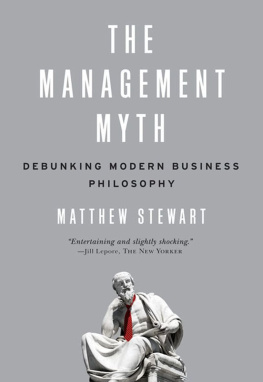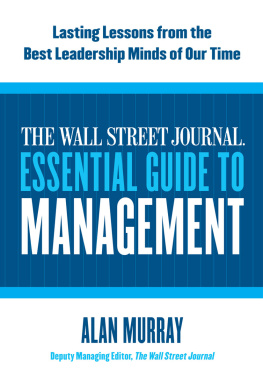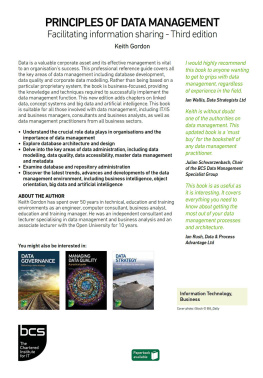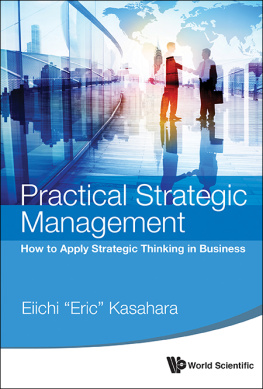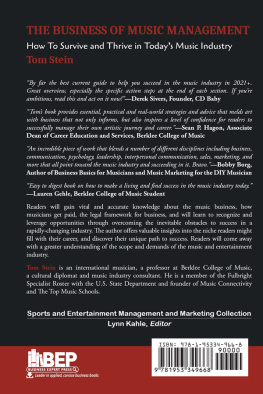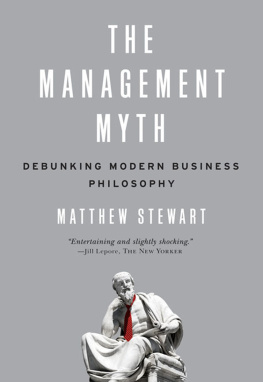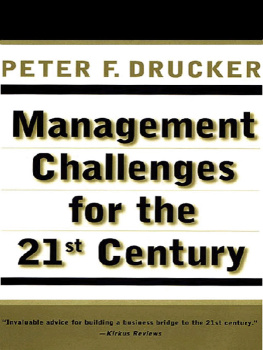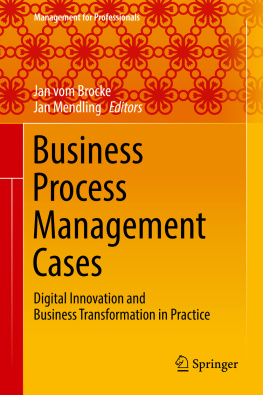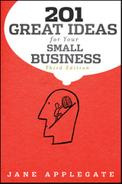Matthew Stewart - The Management Myth: Debunking Modern Business Philosophy
Here you can read online Matthew Stewart - The Management Myth: Debunking Modern Business Philosophy full text of the book (entire story) in english for free. Download pdf and epub, get meaning, cover and reviews about this ebook. year: 2009, publisher: W.W. Norton & Company, genre: Detective and thriller. Description of the work, (preface) as well as reviews are available. Best literature library LitArk.com created for fans of good reading and offers a wide selection of genres:
Romance novel
Science fiction
Adventure
Detective
Science
History
Home and family
Prose
Art
Politics
Computer
Non-fiction
Religion
Business
Children
Humor
Choose a favorite category and find really read worthwhile books. Enjoy immersion in the world of imagination, feel the emotions of the characters or learn something new for yourself, make an fascinating discovery.
- Book:The Management Myth: Debunking Modern Business Philosophy
- Author:
- Publisher:W.W. Norton & Company
- Genre:
- Year:2009
- Rating:5 / 5
- Favourites:Add to favourites
- Your mark:
- 100
- 1
- 2
- 3
- 4
- 5
The Management Myth: Debunking Modern Business Philosophy: summary, description and annotation
We offer to read an annotation, description, summary or preface (depends on what the author of the book "The Management Myth: Debunking Modern Business Philosophy" wrote himself). If you haven't found the necessary information about the book — write in the comments, we will try to find it.
Abstract: A devastating bombardment of managerial thinking and the profession of management consulting...A serious and valuable polemic. -Wall Street Journal Read more...
The Management Myth: Debunking Modern Business Philosophy — read online for free the complete book (whole text) full work
Below is the text of the book, divided by pages. System saving the place of the last page read, allows you to conveniently read the book "The Management Myth: Debunking Modern Business Philosophy" online for free, without having to search again every time where you left off. Put a bookmark, and you can go to the page where you finished reading at any time.
Font size:
Interval:
Bookmark:
The Courtier and the Heretic:
Leibniz, Spinoza, and the Fate of God in the Modern World
Monturiols Dream:
The Extraordinary Story of the Submarine Inventor Who Wanted to Save the World
The Truth about Everything:
An Irreverent History of Philosophy, with Illustrations
Why the Experts Keep Getting it Wrong

W. W. NORTON & COMPANY NEW YORK LONDON
Copyright 2009 by Matthew Stewart
All rights reserved
For information about permission to reproduce selections from this book, write to Permissions,
W. W. Norton & Company, Inc.,
500 Fifth Avenue, New York, NY 10110
Library of Congress Cataloging-in-Publication Data
Stewart, Matthew, 1963
The management myth: why the experts keep getting it wrong / Matthew Stewart.
p. cm.
Includes bibliographical references.
ISBN: 978-0-393-07274-7
1. ManagementPhilosophy. I. Title.
HD30.19.S74 2009
658.001dc22
2009018464
W. W. Norton & Company,
Inc. 500 Fifth Avenue, New York, N.Y. 10110
www.wwnorton.com
W. W. Norton & Company Ltd.
Castle House, 75/76 Wells Street, London W1T 3QT
For K., S., and A.
M y entry into the field of management consulting was like one of those wrong turns that take you into a part of town you never knew existed. At the time, I was just finishing my doctoral dissertation on nineteenth-century German philosophy. My business experience consisted of a miserable summer at a fast-food restaurant, and my acquaintance with management theory was limited to a poster in the restaurant staff room celebrating the virtues of Quality! Service! Cleanliness! I had no clear idea what management consulting was, except that it sounded like the kind of thing that people like me should be prevented from doing. I had no clue what I was getting into.
The adventure began in a pub, over a game of pool. The annual recruiting season had long since come and gone. I was losing badly to a pair of undergraduates who had recently received offers from a prestigious consulting firm. There was something very wrong in the giddy way they talked about their careers in corporate strategy, I thought. They were 22 years old or so; I was going on 26. What could they do for the corporations of the world that I couldnt do better?
The truth is that I badly needed a job. My life savings had dipped into three-digit territory. The only occupation for which I was qualified was teaching academic philosophy; but, on the basis of somewhat obscure philosophical objections, I had developed an aversion to the subject. (To be fair, the feeling appeared to be mutual.) As I gazed at the pool balls ricocheting on their predetermined but unpredictable paths, it occurred to me that, instead of spending the next year watching daytime TV, I, too, could make some ready cash by offering strategy tips to CEOs of Fortune 500 companies.
On the morning after pool night, I typed up a CV and sent copies to about ten management consulting firms. I was unaware of the custom of writing personalized notes to each firm driving home my passion to work for them and them alone, so my cover letters were limited to three curt sentences announcing my availability for employment. Nine out of ten of my envelopes met with the likely response: a swift rejection, accompanied by insincere assurances that I was bound to find suitable employment elsewhere. One CV, however, happened to intersect with a founding partner of one of the smaller, so-called boutique consulting firms just as a space opened up on his schedule in a planned visit to town. This partner, I was later informed, had embarked on an enlightened program of recruiting experimental hires.
That I should have been classified with the laboratory animals seems fair enough. After all, I was in the market for an experimental job. The plan, as I formulated it to friends, family, and skeptical professors in those heady days after winning the interview lottery, was to make a tidy sum of money for a year or two and then resume the journey toward my true calling (whatever that might turn out to be). Spinoza polished lenses for a living and Bertrand Russell wrote potboilers, I reasoned, so what could be wrong with moonlighting as a corporate adviser?
Although the probability that I would get the job was at this point vanishingly small, I nonetheless began to entertain some alarming ambitions. Academic philosophy is landlocked in a desert of pedantry and idealism, I told my friends. Management consulting represents a return to the material world from which philosophy must draw its inspiration. I pictured myself standing on the forecastle of a mighty corporation on the hunt for the great white whale of global capitalism. To the East Asian markets, mateys! I shouted out in my mind. Thar blows a profit opportunity! I was tempted to call myself Ishmael. In short, I was not only unemployable but a potential menace to the working people of the world.
In any case, my competitive instincts had already overwhelmed any merely rational deliberations about the course on which I was set. The interview might as well have been for a position as a tennis instructor; now that I was in the running, I was determined to ace it. Over the next two weeks, I read the Financial Times cover to cover every morning. I set aside my turgid Germans in favor of a copy of Tom Peters and Robert Watermans breezy best seller In Search of Excellence, from which I learned to say things like hands on/value-driven! and to extol the virtues of simultaneous loose-tight properties, whatever those were. Every night I put myself to sleep (literally) with a textbook on corporate finance.
On a drizzly spring morning in 1988, in a baroque-style hotel conference room littered with recently emptied Louis XV chairs, I squared off against Henry, a dapper, silver-haired, 50-ish Englishman with an angular head that looked too big for his small frame. I leaned forward in my seat, tugging at the sleeves of a suit that seemed to have grown tighter since its glory days on the high school debate team and awaited the opportunity to deliver my fortnights worth of insights on globalization, securitization, and the driving need of modern corporations to develop those simultaneous loose-tight properties in the face of relentless international competition. I was prepared, if necessary, to expound my theory that management consulting is a lot like whale hunting.
After the briefest of greetings, Henry smiled, or perhaps smirked, rubbed his chin, and cocked his head a little sideways. Then he looked straight at me and asked, as though the question had just occurred to him, How many pubs are there in Great Britain?
L ife is full of surprises. And thats mostly a good thing. Every surprise is an opportunity for learning. My career as a management consultant was a long list of learning opportunities. Like all other consultants, I owe my education to the extraordinary generosity of clients. With their assistance, I traveled the world and became an expert in several dozen subjects. I helped found a new consulting firm. It shot up like a rocket and then exploded in a fireball of recriminations and lawsuits. Then the stock market, in its inscrutable wisdom, scattered rewards and punishments with benign indifference among the merely undeserving and the viciously incompetent. The experiment that began in my interview with Henry lasted ten years. Frankly, it got a little out of hand. At times it got ugly. But in the end it did yield some interesting and unexpected results.
My experience posed a series of disturbing questionsquestions that eventually prompted me to write this book. The trouble began even before my interview on pub life in Great Britain, with a particularly nagging question: Why on earth would anybody hire me as a management consultant? Shortly after receiving my one and only offer, I rephrased the question: Why would anybody hire a firm that would hire me? I squandered quite a bit of mental energy batting away the suspicion that maybe the firm had made an embarrassing mistake. Were its partners smacking themselves on the forehead, wondering what had possessed them to conduct such a hazardous experiment? In truth, however, the most remarkable aspect of my entry into the field of consulting was just how un remarkable it was. At the time (and even now), firms just like mine were manically hiring all kinds of peoplesome of whom, if it is possible to imagine, were even less qualified than me.
Font size:
Interval:
Bookmark:
Similar books «The Management Myth: Debunking Modern Business Philosophy»
Look at similar books to The Management Myth: Debunking Modern Business Philosophy. We have selected literature similar in name and meaning in the hope of providing readers with more options to find new, interesting, not yet read works.
Discussion, reviews of the book The Management Myth: Debunking Modern Business Philosophy and just readers' own opinions. Leave your comments, write what you think about the work, its meaning or the main characters. Specify what exactly you liked and what you didn't like, and why you think so.

